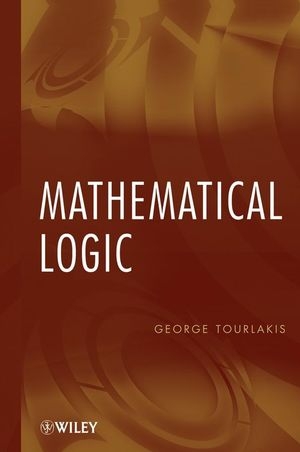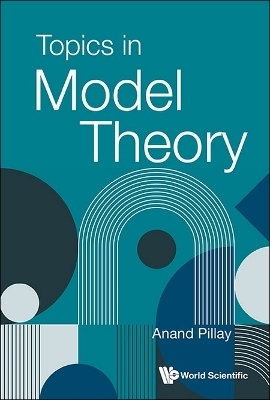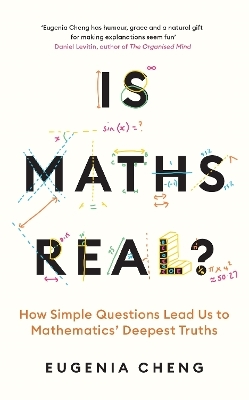
Mathematical Logic
Wiley-Interscience (Verlag)
978-0-470-28074-4 (ISBN)
A comprehensive and user-friendly guide to the use of logic in mathematical reasoning Mathematical Logic presents a comprehensive introduction to formal methods of logic and their use as a reliable tool for deductive reasoning. With its user-friendly approach, this book successfully equips readers with the key concepts and methods for formulating valid mathematical arguments that can be used to uncover truths across diverse areas of study such as mathematics, computer science, and philosophy.
The book develops the logical tools for writing proofs by guiding readers through both the established "Hilbert" style of proof writing, as well as the "equational" style that is emerging in computer science and engineering applications. Chapters have been organized into the two topical areas of Boolean logic and predicate logic. Techniques situated outside formal logic are applied to illustrate and demonstrate significant facts regarding the power and limitations of logic, such as:
Logic can certify truths and only truths.
Logic can certify all absolute truths (completeness theorems of Post and Gödel).
Logic cannot certify all "conditional" truths, such as those that are specific to the Peano arithmetic. Therefore, logic has some serious limitations, as shown through Gödel's incompleteness theorem.
Numerous examples and problem sets are provided throughout the text, further facilitating readers' understanding of the capabilities of logic to discover mathematical truths. In addition, an extensive appendix introduces Tarski semantics and proceeds with detailed proofs of completeness and first incompleteness theorems, while also providing a self-contained introduction to the theory of computability.
With its thorough scope of coverage and accessible style, Mathematical Logic is an ideal book for courses in mathematics, computer science, and philosophy at the upper-undergraduate and graduate levels. It is also a valuable reference for researchers and practitioners who wish to learn how to use logic in their everyday work.
GEORGE TOURLAKIS, PhD, is University Professor of Computer Science and Engineering at York University, Canada. Dr. Tourlakis has authored or coauthored numerous articles in his areas of research interest, which include calculational logic, modal logic, computability, complexity theory, and arithmetical forcing.
Preface. Acknowledgments.
PART I: BOOLEAN LOGIC.
1. The Beginning.
1.1 Boolean Formulae.
1.2 Induction on the Complexity of WFF: Some Easy Properties of WFF.
1.3 Inductive definitions on formulae.
1.4 Proofs and Theorems.
1.5 Additional Exercises.
2. Theorems and Metatheorems.
2.1 More Hilbertstyle Proofs.
2.2 Equational-style Proofs.
2.3 Equational Proof Layout.
2.4 More Proofs: Enriching our Toolbox.
2.5 Using Special Axioms in Equational Proofs.
2.6 The Deduction Theorem.
2.7 Additional Exercises.
3. The Interplay between Syntax and Semantics.
3.1 Soundness.
3.2 Post’s Theorem.
3.3 Full Circle.
3.4 Single-Formula Leibniz.
3.5 Appendix: Resolution in Boolean Logic.
3.6 Additional Exercises.
PART II: PREDICATE LOGIC.
4. Extending Boolean Logic.
4.1 The First Order Language of Predicate Logic.
4.2 Axioms and Rules of First Order Logic.
4.3 Additional Exercises.
5. Two Equivalent Logics.
6. Generalization and Additional Leibniz Rules.
6.1 Inserting and Removing "(∀x)".
6.2 Leibniz Rules that Affect Quantifier Scopes.
6.3 The Leibniz Rules "8.12".
6.4 More Useful Tools.
6.5 Inserting and Removing "(∃x)".
6.6 Additional Exercises.
7. Properties of Equality.
8. First Order Semantics -- Very Naïvely.
8.1 Interpretations.
8.2 Soundness in Predicate Logic.
8.3 Additional Exercises.
Appendix A: Gödel's Theorems and Computability.
A.1 Revisiting Tarski Semantics.
A.2 Completeness.
A.3 A Brief Theory of Computability.
A.3.1 A Programming Framework for Computable Functions.
A.3.2 Primitive Recursive Functions.
A.3.3 URM Computations.
A.3.4 Semi-Computable Relations; Unsolvability.
A.4 Godel's First Incompleteness Theorem.
A.4.1 Supplement: øx(x) " is first order definable in N.
References.
Index.
| Erscheint lt. Verlag | 12.9.2008 |
|---|---|
| Zusatzinfo | Drawings: 2 B&W, 0 Color; Tables: 0 B&W, 0 Color; Graphs: 0 B&W, 0 Color |
| Sprache | englisch |
| Maße | 163 x 235 mm |
| Gewicht | 572 g |
| Themenwelt | Mathematik / Informatik ► Mathematik ► Logik / Mengenlehre |
| ISBN-10 | 0-470-28074-3 / 0470280743 |
| ISBN-13 | 978-0-470-28074-4 / 9780470280744 |
| Zustand | Neuware |
| Haben Sie eine Frage zum Produkt? |
aus dem Bereich


